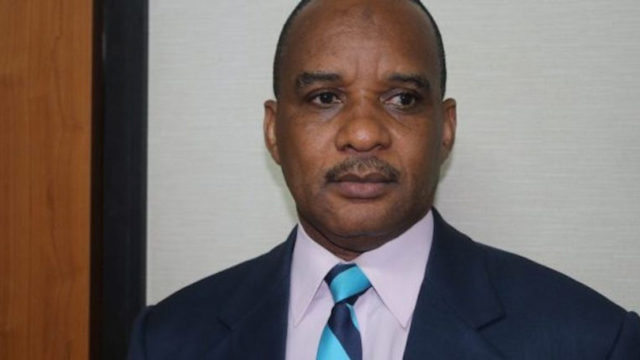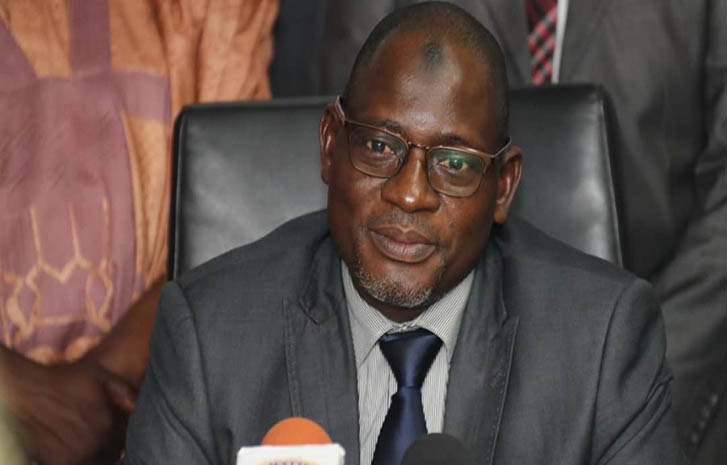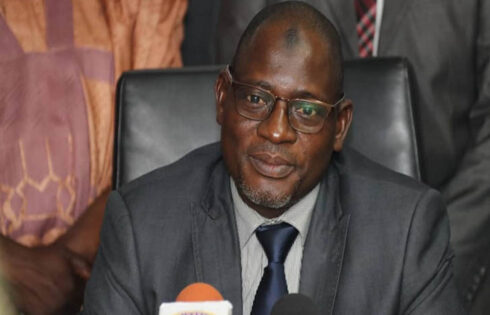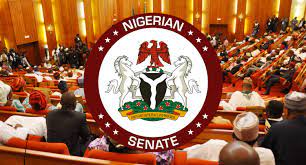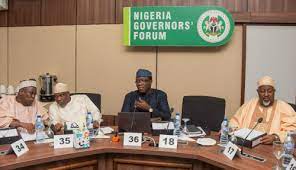The Senate has announced that 59 federal government agencies will refund over N300 billion misappropriated funds into the federation account.
All monies illegally spent by the erring agencies between 2013 – 2015 are to be recovered and remitted into the Treasury within 60 days,the Senate said .
This development was sequel to the Senate’s consideration of the report of the Committee on Public Accounts on the annual report of the Auditor General for the Federation on the accounts of the Federation for the year ended 31st December, 2015 (Part Ii &1).
In his presentation, Chairman of the Committee, Senator Matthew Urhoghide (PDP, Edo), revealed that 114 MDAs were queried in the 2015 audit report, of which 59 had their queries sustained after probe.
He said the Committee also observed across board, the incessant violation of extant rules by MDAs.
The report showed that the Code of Conduct Bureau (CCB) misappropriated N995m; Ministry of Niger Delta Affairs N1.77 billion; Nigerian Port Authority (NPA) N68.9 billion, $2.3 million and €196,000.
The eering agencies include – the Nigeria Health Insurance Scheme (NHIS) N4.35 billion; Bureau of Public Enterprise (BPE) N8.84 billion; Ministry of Petroleum Resources N821.9 million; National Agency for Food, Drugs Administration and Control (NAFDAC) N1.88 billion and Mortgage Bank N369 million.
The report also disclosed that the Ministry of Niger Delta Affairs disposed 22 vehicles to various beneficiaries in May 2015 and realized N5,215,500.
Of the 22 vehicles, eight were purchased on 23 June, and 18 August, 2014 for N106,560,000 and duly paid for. Less than one year after acquisition, six of the vehicles costing N90,870,000 were sold at a ridiculous sum of N2,172,600.
The Senate ordered the sum of N61,436,400.00 being the understated disposable value of the vehicles be recovered and paid back to treasury within 60 days.
It directed that the sum of N4.8 million should be recovered from the statutory allocation of the Ministry after it awarded a contract of N46.4 million and granted tax waiver to the company without recourse to the tax provision of the Federal Inland Revenue Service.
The Senate further asked the ministry to remit the sum of N1.7 billion to the FIRS being the balance of the unremitted outstanding Withholding Task WHT and Value-Added Tax (VAT).
According to the report, the NHIS invested N122,893,876,023 in fixed deposit account without the approval of the Accountant-General of the Federation.
It alleged that the interest yield amounting to N3,716,805, 388.00 realized by the agency was not remitted to the to the Consolidated Revenue Fund.
The Senate panel in its recommendations, upheld the submissions of the Auditor General of the Federation (AuGF) that the agency should refund N3,716,805, 388.00 to the CRF within 60 days.
The agencies have until 60 days from July 14 to refund and return the monies to the federation account.
In his remarks, President of the Senate, Ahmad Lawan, warned that the National Assembly would involve the anti graft agencies.
Lawan said: “My advice will be, let us monitor the implementation. After the 60 days of grace, then we can take the next approximate action.If we go to the EFCC, it is okay but at this point, I think we should give them the opportunity.What is important is to ensure that we send these resolutions to the appropriate quarters for immediate implementation.”
Besides, the Senate faulted the Nigerian National Petroleum Corporation (NNPC) for under remitting the sum of N3,878,955,039,855.73 trillion revenue from domestic crude oil sales to the Federation Account for the period of January to December, 2015.
It implored the corporation to stop further deduction at source as this contravenes Section 162(1) of the 1999 Constitution (as amended).
It also mandated the Federation Accounts Allocation Committee (FAAC) or any other approving authority to, as a matter of urgency, approve agreed percentage which should be allocated to NNPC monthly as operational cost to ensure that their operations are not adversely affected.
These formed part of the 59 recommendations adopted by the Senate and contained in the report of the Committee on Public Accounts on the Annual report of the Auditor-General for the Federation on the Accounts of the Federation for the years ended 31st December, 2015.
The Senate charged the Federation Accounts Allocation Committee (FAAC) to fix a percentage to be allocated to Mining and Cadastral Office as cost of collection as is currently applicable to NCS (7 percent), DPR (4 percent) and FIRS (4 percent) of non-oil revenue.
On Unretired Advances involving 39 Ministries, Departments and Agencies (MDAs) to the tune of N2,296,567,084.37 billion, the upper chamber demanded the sanctioning of Accounting Officers of MDAs in accordance with the provision of Rule 3124 of Financial Regulations.
It also gave the Accountant-General of the Federation, Ahmed Idris, a deadline of 90 days to identify and sanction officers responsible for mismanagement of public funds to the tune of N54,151,360,000 billion ($274,280,000.00) as exchange loss on External Loans.
The Accountant General is expected to report back to the Senate Committee on Public Accounts within ninety days.
In addition, the Senate gave another 90 days timeline for the Office of the Accountant-General of the Federation to set in motion the process of recovery of internal loans made from other Funds which stands at N390,288,085,668.92 billion and to be paid back into the Special Funds Accounts.
The source of the loans are from the Development of Natural Resources Account, Stabilization Fund Account, 25 percent Husked Brown Rice Levy, 1 percent Comprehensive Supervision Scheme (CISS) Pool Levy, 15 percent Wheat Grain Levy, and 10 percent Rice Levy.
The upper chamber directed the Accountant-General of the Federation to recover the sum of N378,879,674.99 tax revenue from Webb Fontaine Ltd and remit same to the Federal Inland Revenue Service within six (6) months.
It also called for a review of all companies that were paid from the out-flow of one percent CISS Account which amounted to N39,557,671,843.97.
The Senate also directed the Nigerian Posts Authority to refund the sum of $37,627,939.75million (USD) to the federal government coffers due to lack of diligence in the review of NPA’s charges on a contract of Towage services.
It also mandated the Economic and Financial Crimes Commission to subject the Accounting Officer to investigation in accordance with Rule 3112 (I and II) of the Financial Regulations.
The Senate also demanded that the Director-General who authorized the disbursement of contingency provision on the contract for the rehabilitation of Lagos Habour moles to the tune of N417,099,309.06 without Federal Executive Council approval to be reported to President Muhammadu Buhari in accordance with Rule 3103 of the Financial Regulations.
On other funds diverted by the NPA, the Senate demanded a refund of various sums in local and foreign currencies, consisting of N1,075,266,599.06, $2,301,329.54 (USD), and €196,257.42 (Euros)meant for the Presidential Implementation Committee on Marine Safety and Security (PICOMSS) to the account of the National Security Adviser to the o President, contrary to a directive approved by the Federal Executive Council on February 21, 2007.
It added that the non-remittance of another N67,508,041,250.00 for 2013 and 2014 into the Consolidated Revenue Fund (CRF), being 25 percent of its Internally Generated Revenue (IGR) contravened the Fiscal Responsibility Act 2007.
It further noted that the failure to remit capitalized interest to the Consolidated Revenue Fund totaling N99,712,464.24 between 2013 and 2014 contravened Rule 236 of the Financial Regulations.
The Senate called for the sanction of the Permanent Secretary of the Federal Ministry of Petroleum Resources in accordance with Rule 3129 of the Financial Regulations and Public Service Rules 030402 over the diversion of N23,642,000.00 from the Capital Projects Funds for purchase of Sallah/Christians welfare package to staff of the Ministry.
The upper chamber queried the sums of N46,645,000.00 and N56,418,135.00 for the printing of the Ministry’s letter-headed paper, and demanded that the sum be recovered and paid back to the treasury.
It also called for the identification of the Project Accountant who authorized the diversion of N32,783,052.00 meant for IPPIS training and other programmes to bank accounts of staff of Finance and Accounts Department, instead of paying the approved amounts to beneficiaries.
The Senate demanded the refund of the amount to government coffers, including the sum of N718,911,848.00 made in the cashbook as payments to eleven corporate bodies without documentation.
Besides, the chamber called on the Ministry to identify and present for disciplinary action, the officers behind the authorization of N98,400,000.00 in favour of a company for printing of leaflets for the Petroleum Industry Bill awareness campaign Programme; N54,000,000.00 to a company for assessment and documentation of Oil Spill sites in ten (10) states of the Niger Delta; and N25,000,000.00 for actualizing e-governance procedure.
The Senate noted that the infractions were in violation of Rule 3117.
The Senate implored the Economic and Financial Crimes Commission to prosecute within 30 days, the Officers in the Ministry of Youths and Sports (National Sports Commission) who certified the payment of N37,185,000.00 from the Capital Vote allocation.
It also directed that N2,695,985.00 be recovered from the emolument of the Director-General of the Small Medium Enterprises Development Agency (SMEDAN), who authorized that the sum be paid to individuals instead of a company’s account.
The Senate demanded the prosecution of the Accounting Officer with SMEDAN who approved the sum of N38,038,238.14 without relevant and supporting documents in contravention to extant laws.
The chamber asked the EFCC to prosecute within thirty days, officers of the Nigeria Bulk Electricity Trading PLC (NBET) who were behind the non-remittance of accrued interest on investment in Nigeria Treasury Bills.
It also sought the prosecution of officers of the National Hospital, Abuja, and the Rural Electrification Agency within the same time frame, who were involved in the diversion of N20,915,998.00 and N14,086,246.00, respectively.




